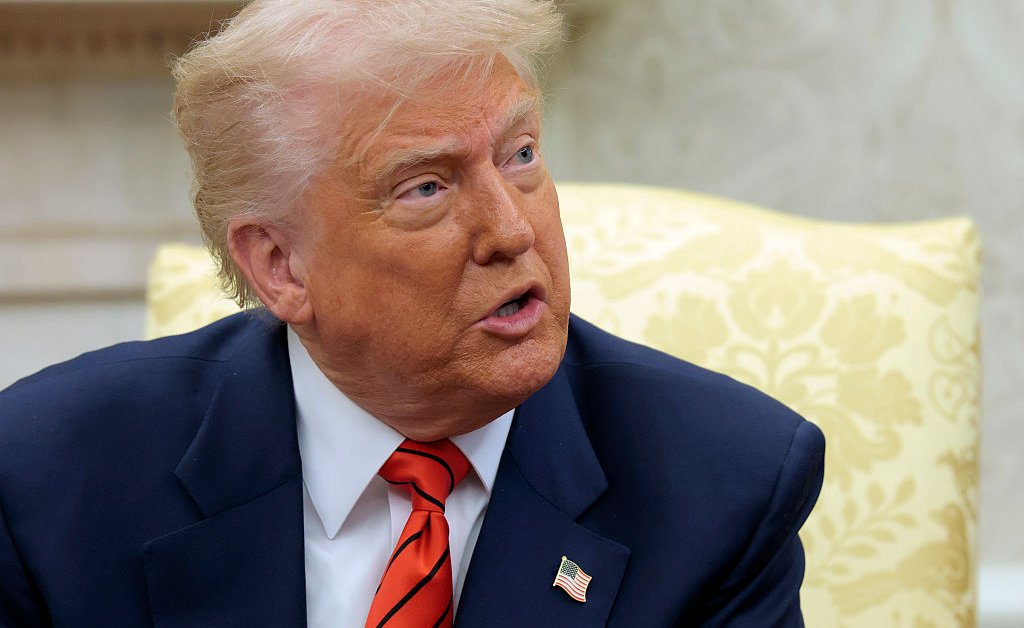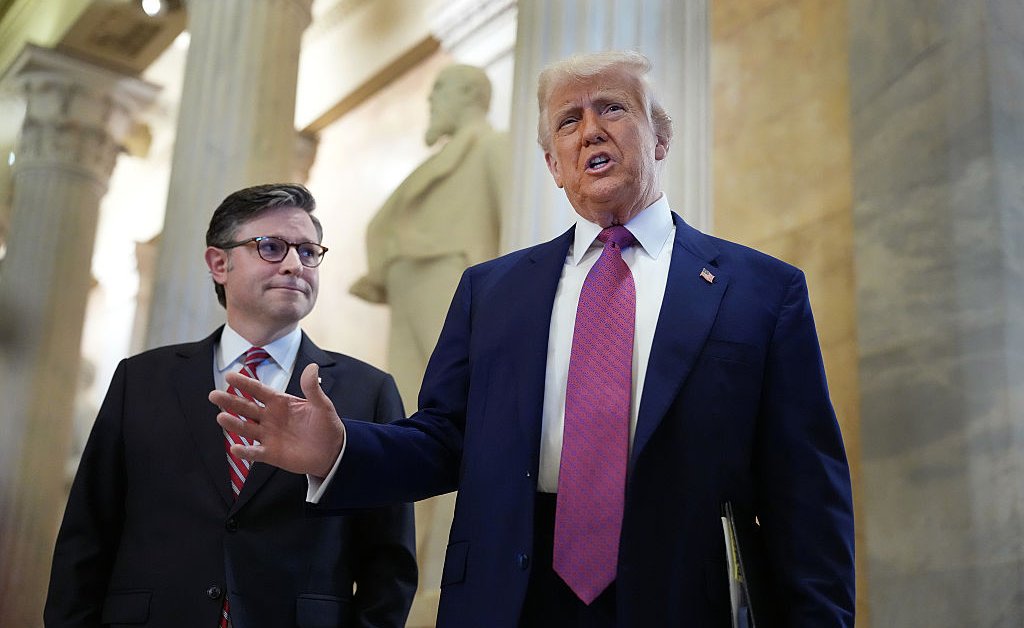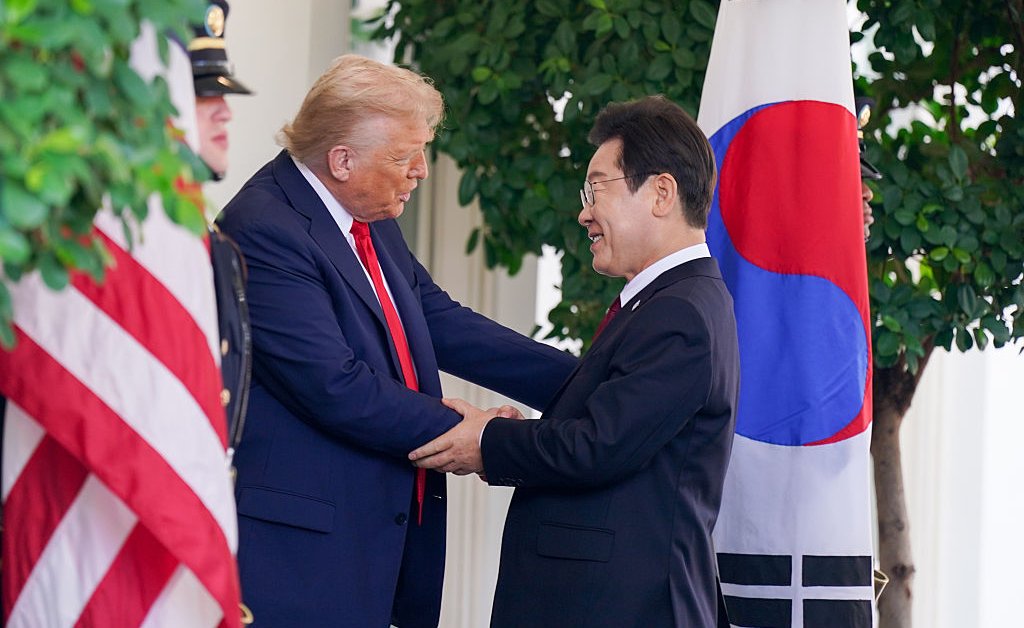President Donald Trump recently attacked Walmart, the biggest private sector employer in the United States and the largest retailer in the world.
Douglas McMillon, CEO of Walmart warned that the Trump Administration’s tariffs could drive cost increases. In response, President Donald Trump took to social media.
“Walmart should STOP trying to blame Tariffs as the reason for raising prices throughout the chain. Walmart made BILLIONS OF DOLLARS last year, far more than expected,” seethed the President. “Between Walmart and China they should, as is said, ‘EAT THE TARIFFS,’ and not charge valued customers ANYTHING. I’ll be watching, and so will your customers!!!”
The rebuke comes the very same week that Trump chided revered Apple CEO Tim Cook for manufacturing in India and is merely the latest in a long line of attacks on some of America’s most iconic businesses. So far during his second term, Trump has lashed out at companies such as Amazon, Bank of America, and Boeing. And organizations including AT&T, Harley-Davidson, and Merck have not been immune to Trump’s wrath. However, business leaders are yet to collectively, and definitively, stand up to him.
Many completely non-political CEOs saw their firms suffer Trump-initiated stock plunges as they made prudent decisions on how to guide their companies around reckless universal trade sanctions.
As Trump’s tariff tantrums threaten to plunge the American economy off a cliff—amidst significant price increases, large layoffs, plummeting business and consumer confidence, and frozen capital investments across industries—CEOs know they need to speak truth to power. But we’ve heard from dozens of Fortune 100 CEOs that they are having a hard time breaking through to President Trump, and conveying the very real dangers facing their businesses, their shareholders, their employees, and their communities.
Furthermore, even though 90% of CEOs agree that tariffs are backfiring, they are fearful that if they speak out on their own, they will turn into the next targets of a capricious, vindictive President—as Walmart found out the hard way.
Trump fears collective action, and relies on pitting rivals against one another through a divide-and-conquer approach. When business groups stand by in passive inaction when individual CEOs get pummeled, they cede the moral and strategic imperative to Trump’s impulsive whims—ultimately leaving business leaders twisting in the wind.
Some trade groups, such as the Chamber of Commerce, the National Association of Manufacturers, and the Chamber of Progress—along with other specialized industry groups from the automotive sector to the pharmaceutical industry—have tried to pick up the pieces. However, there are many who wonder why the Business Roundtable, a D.C.-based lobbying firm and association of more than 200 leading CEOs, seems to be missing in action. Indeed, why have they not played a greater role in catalyzing collective action beyond putting out perfunctory statements and purported behind-the-scenes lobbying?
This muted response follows other high-profile disappointments from the Business Roundtable in the Trump era, including during his first term.
In August 2017, following Trump’s horrifying defense of neo-Nazis who attacked peaceful counterdemonstrators at a rally in Charlottesville, Va., the American business community stood together.
The highly-regarded CEO of Merck, Ken Frazier led the charge. In his resignation letter he wrote, “As C.E.O. of Merck and as a matter of personal conscience, I feel a responsibility to take a stand against intolerance and extremism.”
The son of a well-read custodian, Frazier grew up in North Philadelphia and became one of few black Fortune 500 chief executives. Trump predictably attacked him, which immediately backfired. Over the next several days, CEOs who had once shunned politics came to Frazier’s vocal defense, including the heads of Walmart, Intel, BlackRock, and IBM.
When Frazier exited the President’s Business Advisory Group, he set off a high-profile stampede of exits. Frazier’s peer CEOs walked out in solidarity, triggering the disbanding of the two of President Trump’s business advisory councils: the Manufacturing Council and the Strategy and Policy Forum.
At the time, many CEOs were frustrated that the Business Roundtable remained relatively passive—especially amidst an era of perceived antitrust politicization, with Trump deputies holding up the Time Warner-AT&T deal on specious grounds for 18 months.
Similarly, when in November 2020, President Trump refused to acknowledge his electoral defeat, 22 CEOs, frustrated with inaction by the Business Roundtable, asked me to convene an immediate Zoom call for 100 of the nation’s largest CEOs. All showed up—from pharma to finance, advertising to airlines, consumer goods to consulting. During this “Chamber of Conscience” meeting, these business leaders stood up for the importance of certified elections and also certified the truth—meeting for four sessions through the presidential transition under the banner of Business Leaders for National Unity.
That silence of the Business Roundtable is a far cry from why it was created. I personally knew the highly engaged, politically diverse founding generation of Business Roundtable members—ranging from Reginald Jones of GE, Clifton Garvin of Exxon, Irving Shapiro of DuPont, George Weyerhaeuser of his eponymous timberland firm, Al Casey of American Airlines, Roger Smith of GM, Jim Burke of Johnson & Johnson, and Roy Vagelos of Merck—and they set up the Business Roundtable explicitly as a vehicle for collective action for CEOs to tackle public policy issues.
As Trump attacks our nation’s most iconic enterprises, the Business Roundtable needs to return to its founding principles, purpose, and moral clarity so that CEOs are not left dangling in the wind all alone and defenseless while Trump picks them off individually. CEOs grappling with how to break through to a mercurial President as they watch their enterprises and the broader economy teeter off the ledge know there is strength in collective action—lest they become Trump’s next target.








